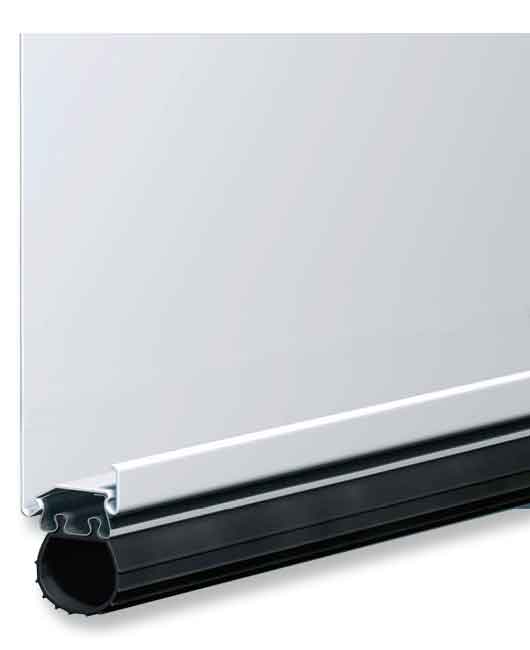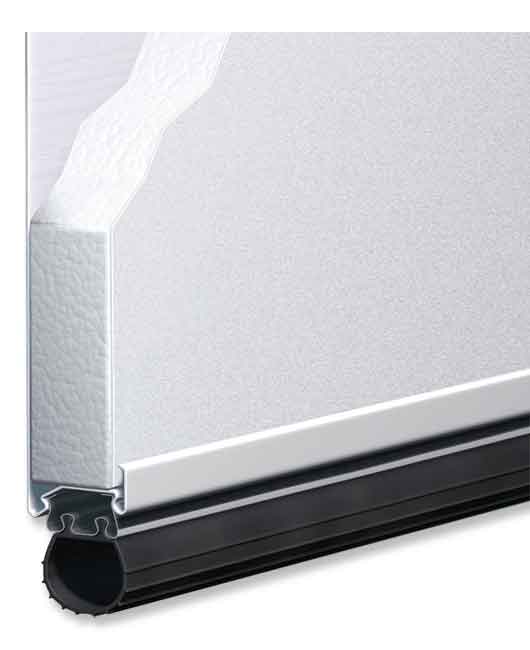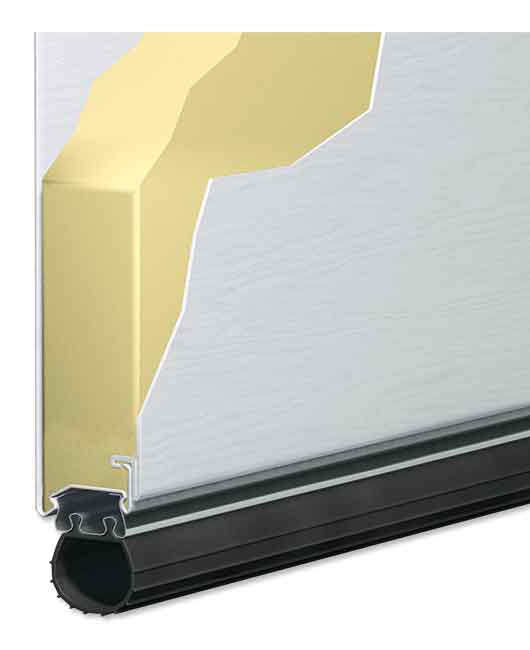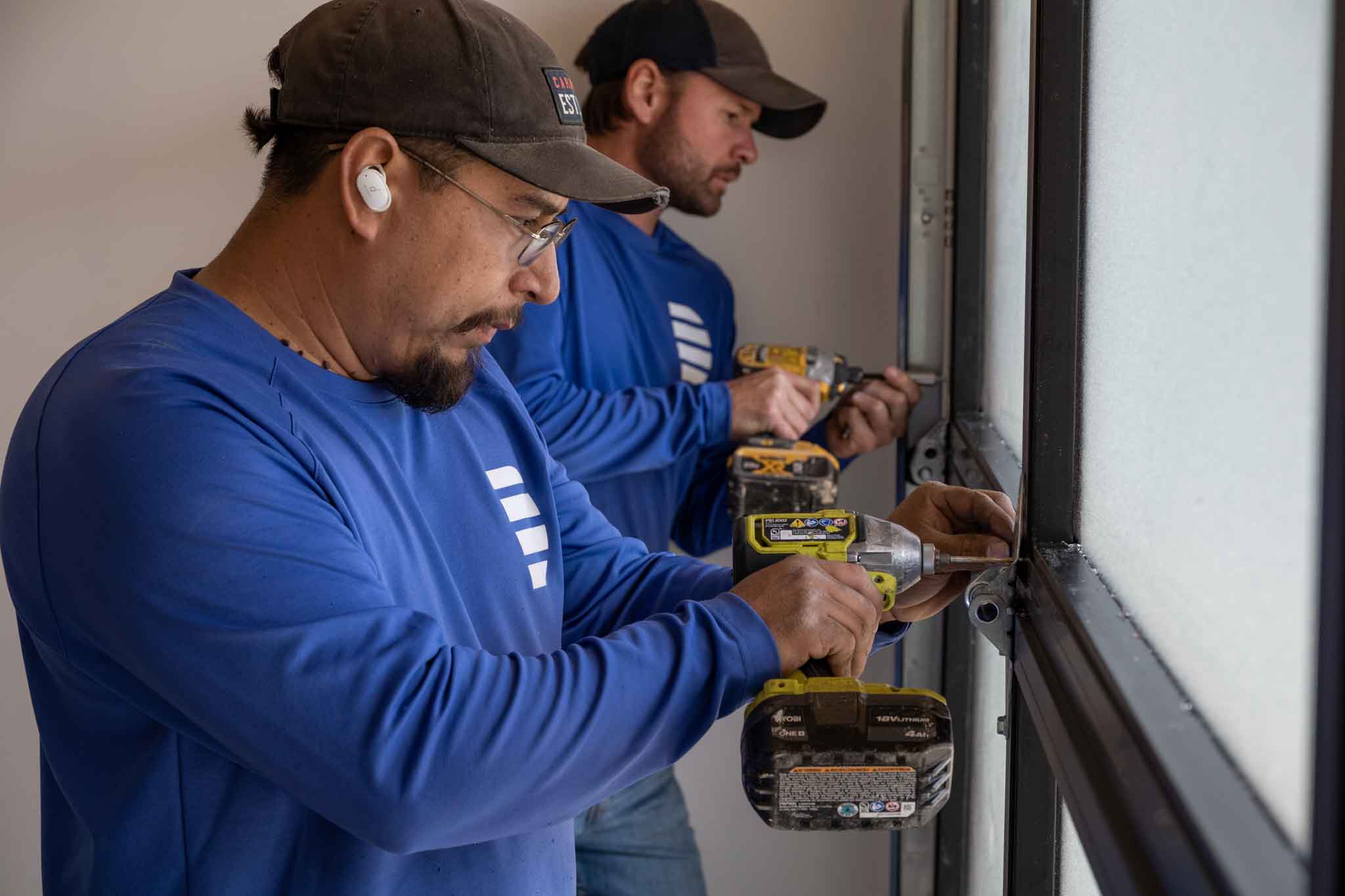There are several factors to remember when shopping for a garage door in Fort Worth. Many homeowners consider aesthetics, style, design, material, and durability. While they aren’t wrong, they aren’t exhaustive either. Understanding garage door R-values might help you decide which garage door to purchase.
So, what is R-value, and why does it matter regarding garage doors?
What is Garage Door R-Value?
The R-value measures how well your garage door can resist heat transfer. The higher the R-value, the better the garage door can insulate. The rating matters, especially if you live in an area that experiences drastic temperature variations. It’s also essential when choosing the ideal energy-efficient insulation for your home and garage doors.
R-value is calculated based on the material’s thickness (inches) divided by its rate of heat flow/thermal conductivity (k-value or lambda value (λ) in W/mK).
For instance, if the material is 2″ thick with a thermal conductivity of 0.5, then the material’s R-value is 4. (2 divided by 0.5), presented as R-4 per inch of thickness.
What Is a Good R-Value for a Garage Door?
There’s no one-size-fits-all ideal R-value for garage doors in Fort Worth. It depends on several factors, such as weather, budget, and personal needs and preferences.
However, the higher the R-value, the better insulation the material provides.
A general rule of thumb is to choose a garage door or insulation material with an R-value of at least ten and above. For instance, polyurethane has the highest R-value of 16 and can provide better insulation, and is more energy efficient than fiberglass with an R-value of 3.8.
R-Value Ranges for Garage Doors
Garage Door Type Typical R-Value Range Notes Non-Insulated R-0 Basically no insulation, just the door material itself. Single-Layer R-1 to R-3 Minimal insulation, often just a single layer of material. Double-Layer R-4 to R-7 Some insulation added between layers, but may have thermal breaks. Triple-Layer R-6 to R-12 Usually has a good amount of insulation between layers. Premium Insulated R-12 to R-20+ High-density insulation, often with thermal breaks minimized.
Climate Zones and Recommended R-Values
Providing a precise map or chart for garage door R-values by climate zone is difficult, as recommendations can vary depending on specific local conditions. However, here are some general guidelines based on the US Department of Energy’s climate zones:
- Zones 1-3 (Warmer Climates): R-6 to R-9 may be sufficient.
- Zones 4-5 (Mixed Climates): R-9 to R-12 is a good range.
- Zones 6-8 (Colder Climates): R-12 or higher is recommended.
Important: These are just general guidelines. Factors like whether your garage is attached/detached, how much you use it, and whether you have heating/cooling in the garage will also influence the ideal R-value.
Why Does R-Value for My Garage Door Matter?
R-value is among the most vital factors when choosing the ideal garage door for your Fort worth property.
It matters because:
- Energy efficiency since your garage door can be a significant source of heat loss or gain in your home. A garage door with a high R-value can help regulate this heat transfer and improve your home’s energy efficiency.
- Comfort – a well-insulated garage door can regulate the temperature in your home, making it more comfortable, depending on the weather.
- Durability – a garage door with a high R-value is often constructed from higher-quality materials and better insulation methods, increasing its durability and longevity.
- Resale Value – a garage door with a high R-value can boost your property’s resale value since it has energy-efficient features.
- Warranty – a garage door with a high R-value likely has a warranty covering both the door and the insulation.
- Knowing that you have a high-R-value garage door can give you peace of mind and heart, knowing that your property is protected from the elements.
As you can see, there’s more to the R-value than just a figure. All the more reasons to ensure it’s ideal.
How Do I Know the R-Value for My Garage Door?
If you wonder whether you got the ideal garage door with a high R-value, fret not.
There are several ways to check, identify, and confirm you’ve installed the right garage door for your property:
- Check the manufacturer’s label or product manual displaying the garage door’s specifications and other technical information, including the R-value. The label might be on the inside of the door, near the top or bottom.
- Contact the manufacturer or dealer directly if you need help finding the R-value or any other info.
- Measure the door’s thickness to get an idea of its insulation and compare it to other doors with known R-values for a rough estimate.
- Look for other insulation features, such as polyurethane foam or weatherstripping, and compare them to various insulation to determine the R-value.
- Consult a garage door professional from Doorvana to inspect your door and help you determine its insulation effectiveness.
- Use an online R-value calculator.
Determining the R-value is vital when and after buying your garage door or insulation.
How Can I Improve the R-Value?
If you need to boost your home’s energy efficiency, comfort, and value, a garage door with a higher R-value is a good start.
Alternatively, if you discover that your garage door has a low R-value, you can boost it in several ways:
- Add insulation with a high R-value, such as polyurethane.
- Replace the garage door with a new one with a higher R-value.
- Seal air leaks – use weatherstripping – that may reduce your garage door’s insulation effectiveness.
- Insulate the garage walls to improve your home’s energy efficiency, especially if attached.
- Install thermal barriers/breaks on the garage door or a door with pre-installed thermal breaks. Thermal breaks are insulating materials inserted between the garage door layers to reduce heat transfer.
- Choose the right garage door opener with energy-saving features, such as a smart garage door opener.
Is the R-Value the Only Factor That Matters for Garage Doors?
The short answer is; no, it shouldn’t.
While the R-value is a vital determining factor when choosing an energy-efficient garage door, there are other factors you should consider as well, including:
- The door’s construction and design – a double-layer or triple-layered door with added insulation is more energy-efficient than a single-layered door and has a higher R-value.
- The materials used are unique, with different insulating properties, while others may be more suited for specific weather conditions than others.
- Installation – an improperly installed garage door may have imperfections, such as air gaps, lowering its R-value. That’s why it’s crucial for a qualified professional to install your garage doors properly.
- The door’s orientation and location – a garage exposed to direct sunlight or harsh elements may require a door or insulation with a higher R-value.
Your Trusted Fort Worth Garage Door Experts
A good R-value is crucial for keeping your garage and home comfortable and energy-efficient. However, finding the ideal garage door or insulation with the proper R-value requires research and working with industry-leading experts. That’s where Doorvana comes in! We are the go-to energy-efficient garage door experts in Fort Worth. Please don’t settle for a low R-value garage door; call us at 817.500.5988 for expert guidance and a wide selection of energy-efficient garage doors.









